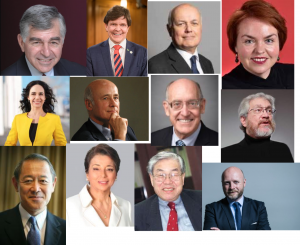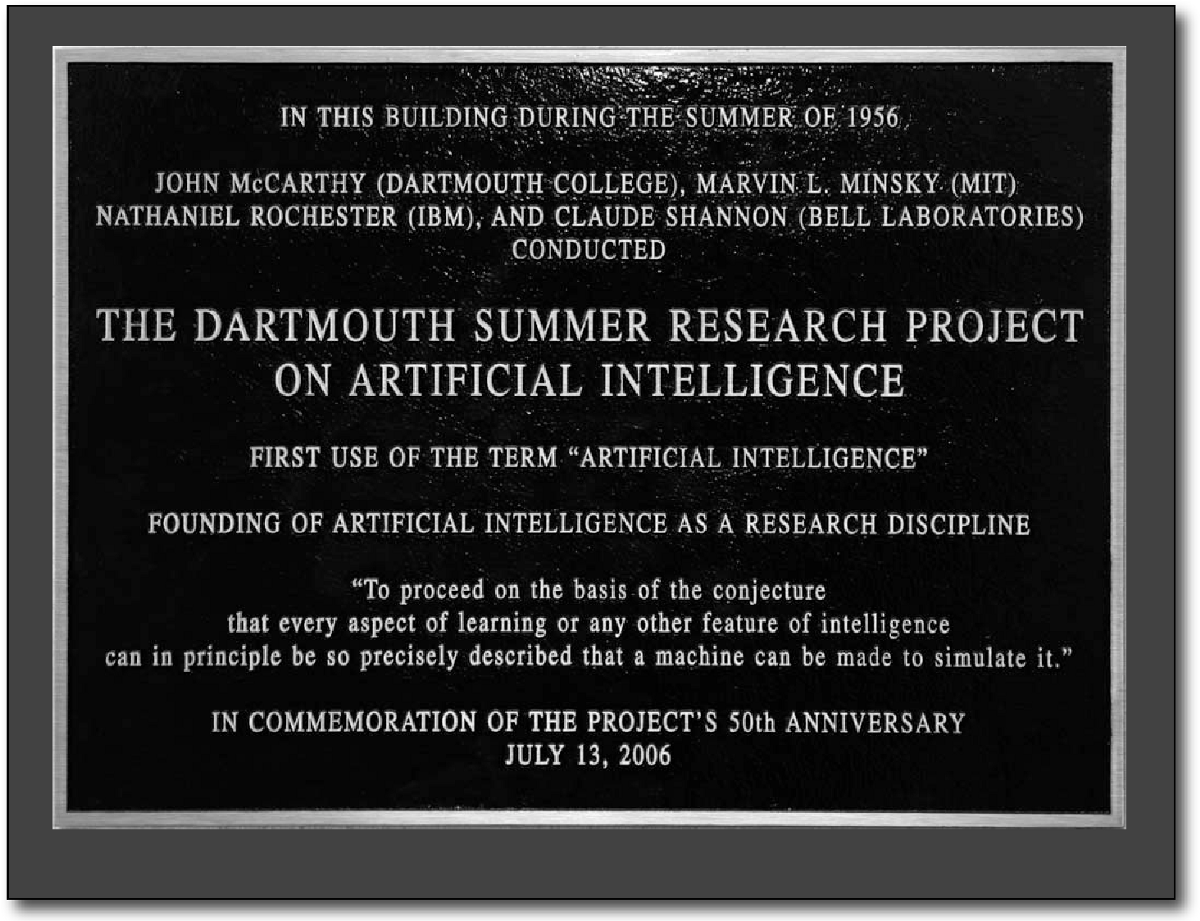
by Admin | Sep 1, 2022 | Chronicles, News
This week in The History of AI at AIWS.net – the Dartmouth Summer Research Project on Artificial Intelligence was proposed. The proposal was submitted on September 2, 1955, but written on August 31, 1955. It was the collaboration of John McCarthy, Marvin Minsky, Nathaniel Rochester, and Claude Shannon, who would all go on to become important AI pioneers. John McCarthy and Marvin Minsky came from academic backgrounds (Dartmouth and Harvard respectively). On the other hand, Nathaniel Rochester (IBM) and Claude Shannon (Bell Telephones) were tied to corporations.
This proposal was the first instance of the phrase Artificial Intelligence being used officially. The document names direct some aspects of AI – automatic computer, how can a computer can be programmed to use a language, neuron nets, theory of the size of calculation, self improvements, and randomness and creativity. The research proposal asked for funding from sources such as the Rockefeller Foundation. Their estimated cost was $13,500 (not calculated for inflation)
The document called for a “2 month, 10-man study of Artificial Intelligence” in the summer of 1956 (the year following this document’s publication) at Dartmouth College. During this study, researchers will try to connect computer and information sciences with the brain. Each originator of the document wrote their own research proposal.
This event marks one of the beginnings of AI – the conception of what AI is and AI could be. It is the prelude to the big event of AI, the Dartmouth Conference. Without a seminal source like this, AI would not exist or may have taken a different direction entirely. The program, History of AI, owes a debt to the document.
A PDF of this proposal can be found here.
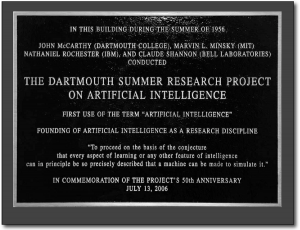
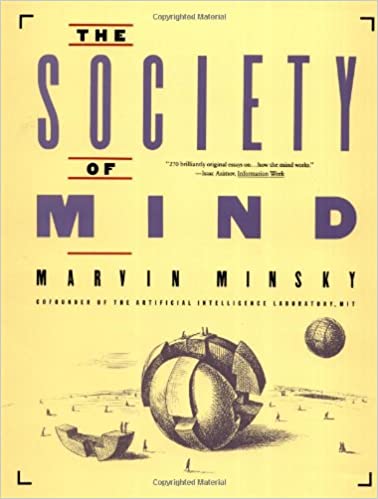
by Admin | Aug 27, 2022 | Chronicles, News
This week in The History of AI at AIWS.net – Marvin Minsky publishes The Society of Mind in 1987. This book is a theoretical description of the mind as a collection of cooperating agents.
Marvin Minsky was an American cognitive and computer scientist. He penned the research proposal for the Dartmouth Conference, which coined the term “Artificial Intelligence”, and he was a participant in it when it was hosted in 1956. Minsky would also make significant contributions to artificial intelligence, both in the study of the field and in popular culture. He won the Turing Award in 1969.
The Society of Mind is a book on the theory of “Society of Mind”, which came out of Marvin Minsky’s own thinking. In the book, Minsky describes the mind as a collection of mindless but cooperating “agents”. He first started developing the theory with Seymour Papert in the 1970s, but worked on it and published the book at a later point. The book is viewable at the Internet Archive.
Although the book does not directly reference or influence the development of artificial intelligence, it displays the theoretical dimensions of Marvin Minsky, the AI pioneer. The book also gives a glimpse into Minsky’s thinking in building artificial intelligence. Thus, the HAI initiative considers this an event in the history of AI.
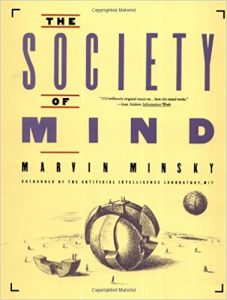
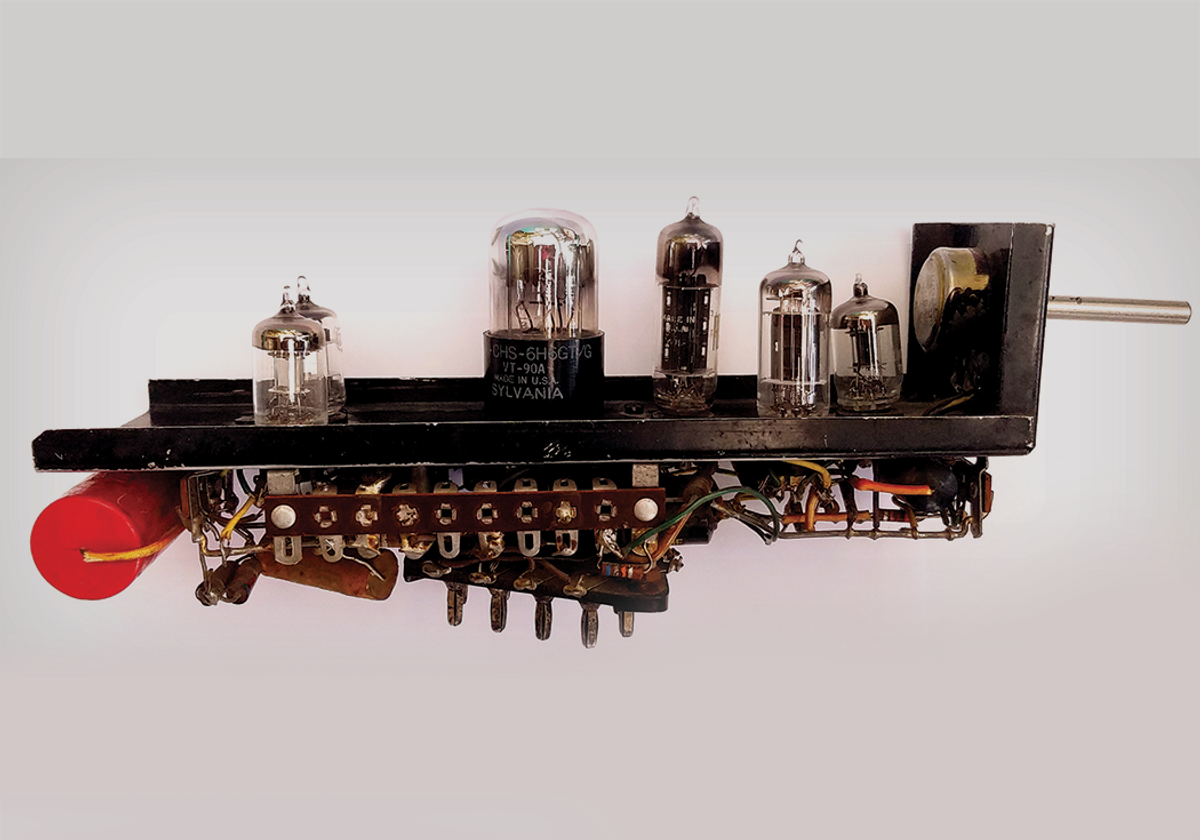
by Admin | Aug 20, 2022 | Chronicles, News
This week in The History of AI at AIWS.net – Marvin Minsky and Dean Edmonds built SNARC, the first artificial neural network, in 1951. SNARC stands for the Stochastic Neural Analog Reinforcement Calculator. It is a neural net machine, which itself is a randomly connected network of 40 Hebbs synapses. The idea to develop the machine was from a letter by Minsky to George Armitage Miller, who then got funding from the Air Force Office of Scientific Research. Dean Edmonds volunteered to help, as he was good with electronics.
Marvin Minsky was a graduate student in mathematics at Princeton at the time of this project. He would go on to be an important pioneer in the field of AI. He penned the research proposal for the Dartmouth Conference, which coined the term “Artificial Intelligence”, and he was a participant in it when it was hosted the next summer. Minsky would also co-founded the MIT AI labs, which went through different names, and the MIT Media Laboratory. In terms of popular culture, he was an adviser to Stanley Kubrick’s acclaimed movie 2001: A Space Odyssey. He won the Turing Award in 1969.
Dean Edmonds was a graduate student in physics at Princeton at the time of the project. Although there is not many information about him, he wrote a short piece about his time around academia, which also details his contacts with Minsky and SNARC. George Armitage Miller, who helped get funding for the project from the Air Force, was an American psychologist. He was a pioneer in the field of cognitive psychology and cognitive science.
This project is important to the History of AI as SNARC machine was one of the first experiments in the Artifical Intelligence. Furthermore, Marvin Minsky would become one of the founders of AI. HAI considers this an eventful project in the early development of AI.

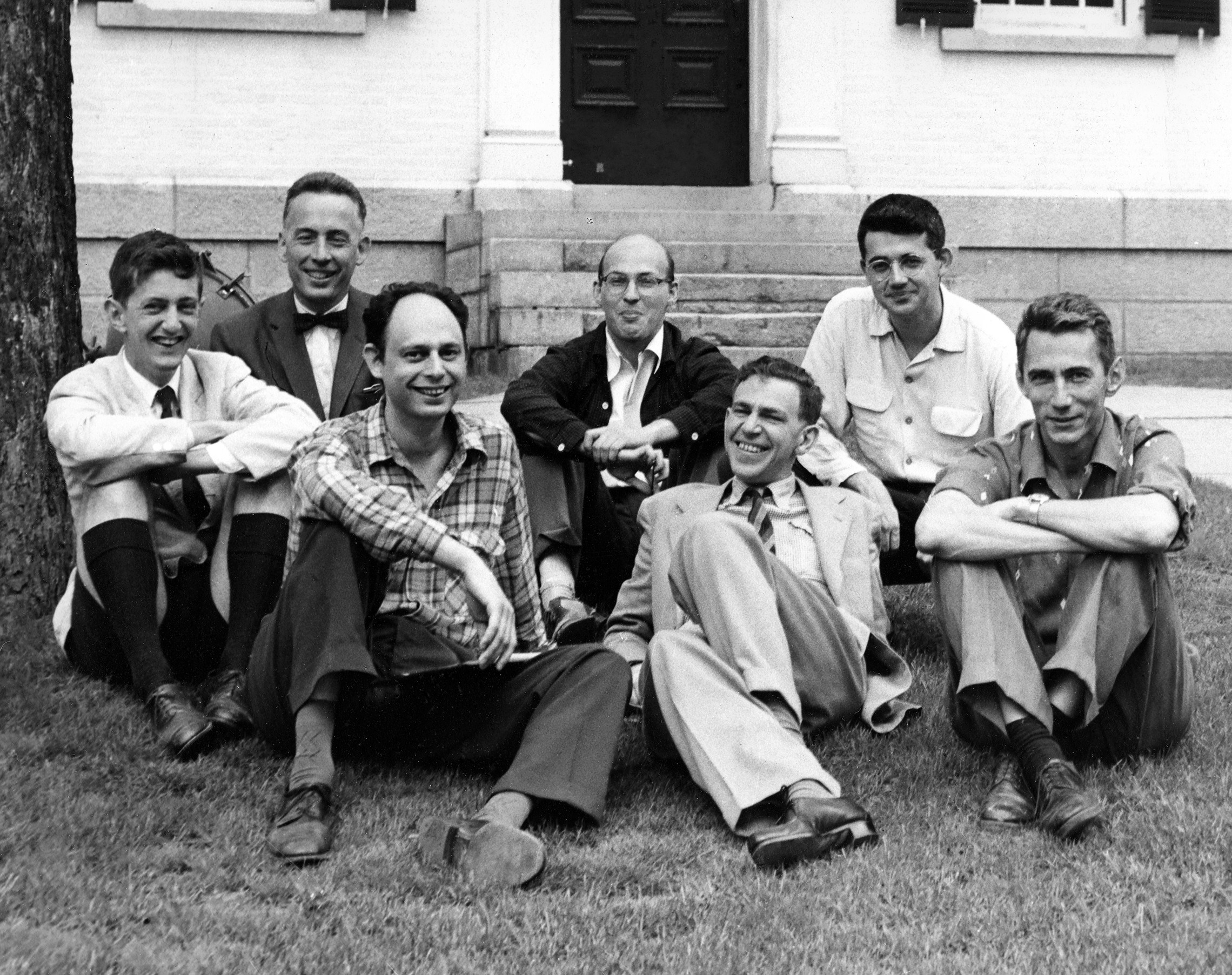
by Admin | Aug 12, 2022 | Chronicles, News
This week in The History of AI at AIWS.net – the Dartmouth Conference ended on August 17th, 1956. This gathering lasted the entire summer at Dartmouth College in Hanover, New Hampshire, having started on 16th June.
The Dartmouth Conference was originally dreamt up by John McCarthy, Marvin Minsky, Nathaniel Rochester, and Claude Shannon. They envisioned a workshop to connect computer and information sciences with the brain. In addition to asking for funding, they also determined that Dartmouth College was the location to host such event.
At the actual event, various attendees came and go throughout the approximate eight weeks the workshop ran for. On weekdays, the participants had the top floor of the Mathematics Department at Dartmouth College to present their ideas, as well as having general discussions held. Participants and members (outside of the authors) of the discussions and presentations included, but not limited to, Ray Solomonoff, Arthur Samuel, Herbert Simon, Allen Newell, and Oliver Selfridge.
This end of this workshop marks one of the beginnings of AI – the conception of what AI is and AI could be. The attendees from the event discussed and brainstormed ideas on artificial intelligence, which they would bring back to their respective colleges and universities. Without a seminal event like this, AI would not exist or may have taken a different direction entirely. Thus, the HAI project considers the Conference an event in the History of AI.
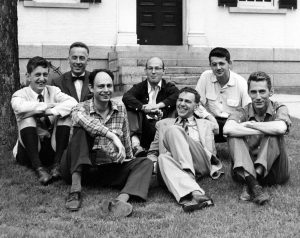
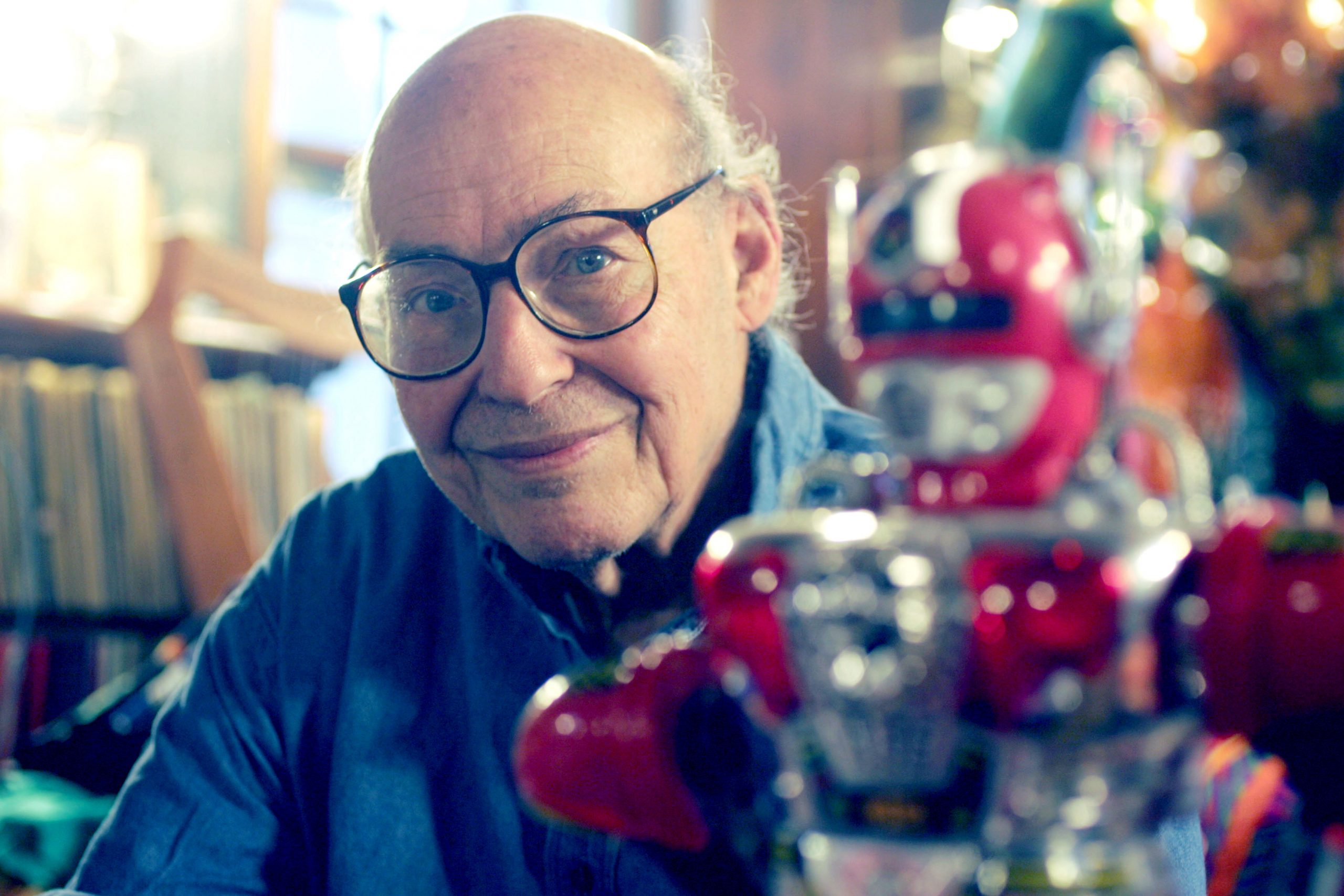
by Admin | Aug 6, 2022 | Chronicles, News
This week at the History of AI – Marvin Minsky was born on August 9th, 1927. Minsky was one of the most influential AI scientists.
Marvin Minksy was an important pioneer in the field of AI. He penned the research proposal for the Dartmouth Conference, which coined the term “Artificial Intelligence”, and he was a participant in it when it was hosted the following summer. Minsky would also co-founded the MIT AI labs, which went through different names, and the MIT Media Laboratory. In terms of popular culture, he was an adviser to Stanley Kubrick’s acclaimed movie 2001: A Space Odyssey. He won the Turing Award for his influence on AI in 1969, as well as the Benjamin Franklin Medal in 2011.
Marvin Minsky was one, if not the, most important figure in the development of Artificial Intelligence, as outlined above. His contributions to the Dartmouth Conference, as well as his works at MIT. Furthermore, he was one of the most famous face for AI development to the public and in popular culture. Thus, the HAI project considers his birth an event in the History of AI.

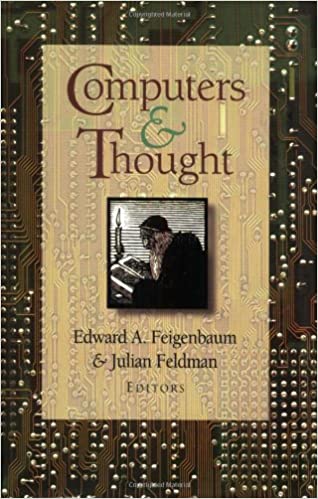
by Admin | Jul 30, 2022 | Chronicles, News
This week in The History of AI at AIWS.net – Edward Feigenbaum and Julian Feldman published Computers and Thought, a book composed of articles on Artificial Intelligence, the first of its kind, in 1963. Feigenbaum and Feldman edited and wrote some of the articles but they were not the the only contributors. Computers and Thought includes 20 articles from notable AI pioneers such as Alan Turing, Marvin Minsky, Allan Newell, Herbert Simon, and others.
Edward Feigenbaum is an American computer scientist focused on Artificial Intelligence. He studied at Carnegie Mellon University for both his B.S. and Ph.D., with Herbert Simon, an AI pioneer, as his doctoral advisor. He would go on to work at UC Berkeley and Stanford, the latter where he became Professor Emeritus of Computer Science (since 2000). Feigenbaum received the ACM Turing Award in 1994 with Raj Reddy for pioneering in AI and demonstrating its commercial potential.
Julian Feldman is an American computer scientist with an eye on Artificial Intelligence. Feldman studied at the University of Chicago for his undergrad; received an M.A. in political science; before going to Carnegie Mellon’s Graduate School of Industrial Administration for his Ph.D. He held a tenured position at UC Berkeley, before leaving it to help build UC Irvine, where he would create its Information and Computer Sciences department, the first ICS school in the UC system. Feldman also wrote papers and articles on connectionism, a fairly contentious topic within AI and computer science.
The HAI Initiative considers this book an important event in the history of AI due to its culmination of various thoughts on AI from its pioneers. Feigenbaum and Feldman themselves are also notable figures in the development of artificial intelligence.
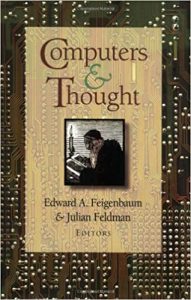
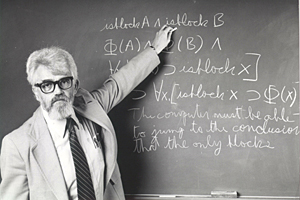
by Admin | Jul 22, 2022 | Chronicles, News
This week in The History of AI at AIWS.net – John McCarthy proposed the “advice taker” in his paper “Programs with Common Sense.” This hypothetical program was the first to use logic to represent information. The paper was published in 1959.
John McCarthy was an American computer scientist. He, along with Minsky and others, co-wrote the proposal for the Dartmouth Conference, and participated in it. McCarthy also developed the Lisp programming language. He spent most of his career at Stanford after working at Dartmouth and MIT. McCarthy won the Turing Award in 1971.
McCarthy wrote and published the paper while he was a part of the Computer Science at Stanford University. It can be viewed and downloaded here.
The HAI initiative considers this an event in the history of AI due to the paper being one of the earliest developments in artificial intelligence. Furthermore, John McCarthy is one of the pivotal figures in the growth of the field, having been there at the Dartmouth Conference.

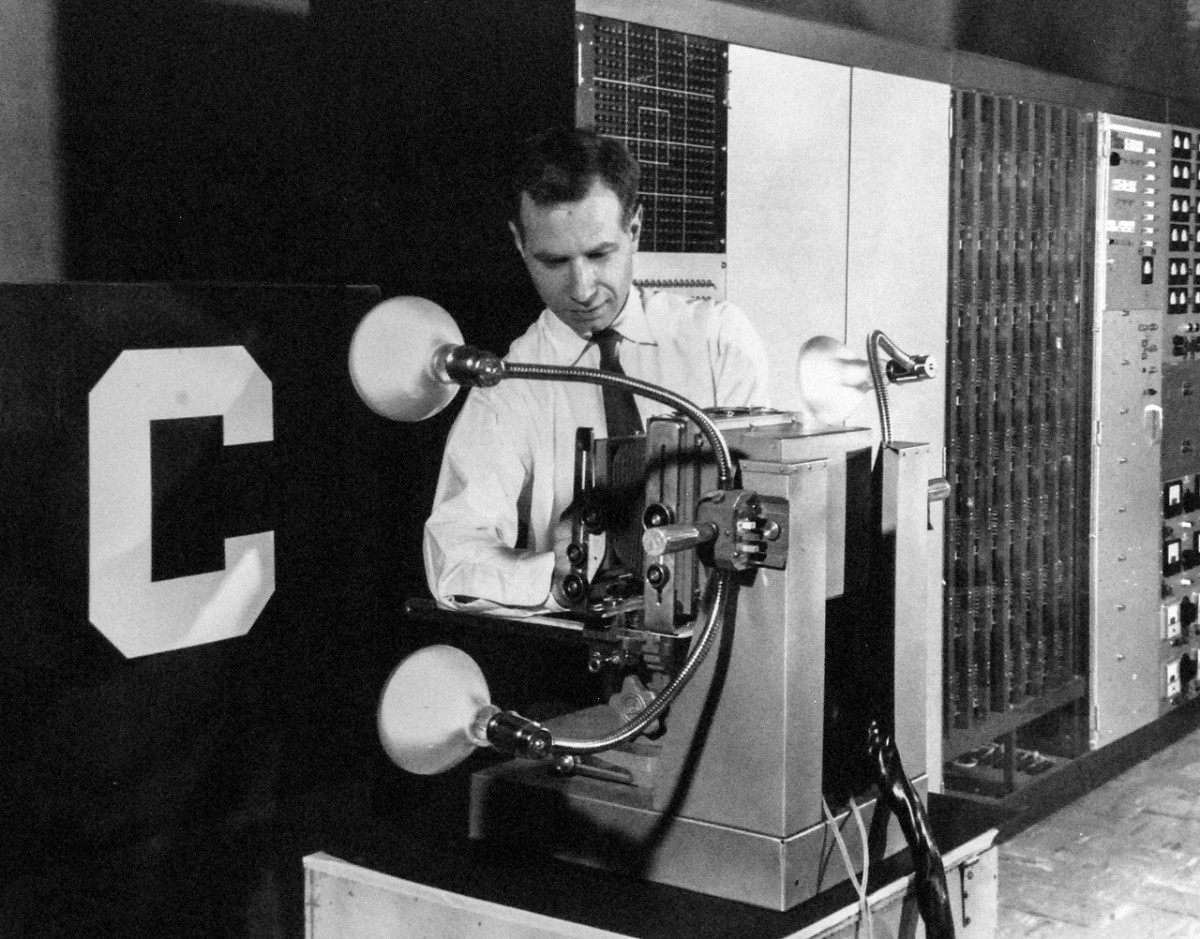
by Admin | Jul 15, 2022 | Chronicles, News
This week in The History of AI at AIWS.net – Frank Rosenblatt developed the Perceptron in 1957. It is a form of neural network that allowed pattern-recognition.
Frank Rosenblatt was an American psychologist. Born in 1928, Rosenblatt would go on to study at Cornell University for both his undergraduate studies and doctorate. He worked at Calspan, then the Cornell Aeronautical Laboratory, where he was a psychologist and became the head of one of the departments there. This lab is also where he would develop perceptrons. In 1959, he went to work at the Cornell campus on Ithaca, becoming a professor and director of programs. Rosenblatt passed away in 1970.
The Perceptron is a device that was built with biological principles ability to learn in mind. It was originally simulated on an IBM machine in 1957. Rosenblatt received media recognition and coverage for the Perceptron, with magazines such as the New Yorker proclaiming that it was “a remarkable machine… capable of what amounts to thought.” However, Marvin Minsky and Seymour Papert put a damper on the enthusiasm for Perceptrons when they published a book describing its limitations. The utility of Peceptrons is still discussed to this day, with some even claiming that it was ahead of its time.
This development is considered an event in the history of AI since Perceptrons were seen as one of the precursors to artificial intelligence. It also displays the early thought and reception to the growing AI field. Thus, the HAI initiative considers this event one of the events in the History of AI.
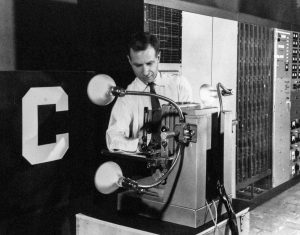
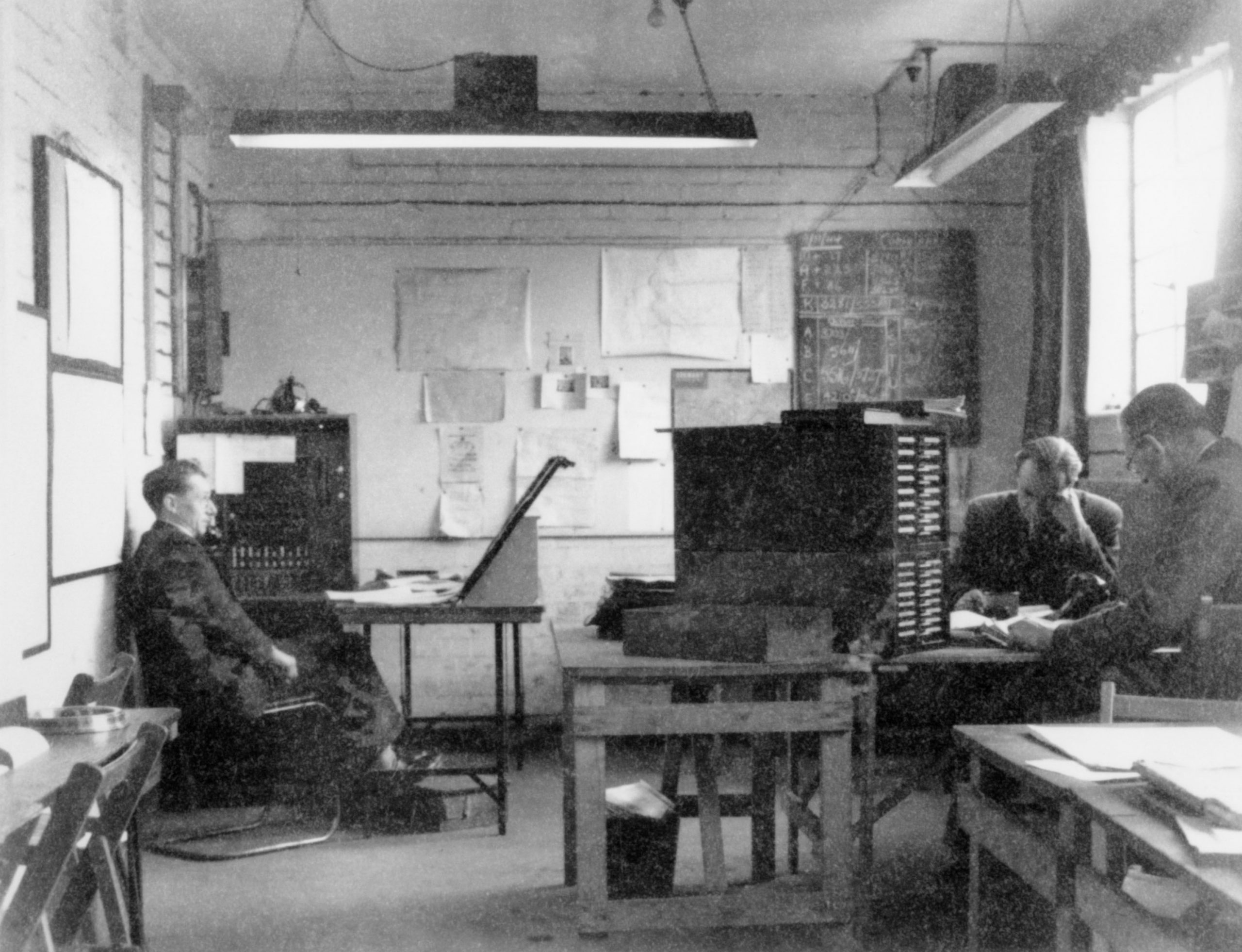
by Admin | Jul 10, 2022 | Chronicles, News
This week in The History of AI at AIWS.net – Bletchley Park cryptologists broke the German Enigma code on 9th July, 1941. Alan Turing, considered the founder of computer science and AI, played a vital role in this process in developing the Bombe.
Alan Turing was a British computer scientist and cryptanalyst. He developed the Turing machine, a model of a general-purpose computer, in 1936. During the Second World War, he worked at Bletchley Park (Government Code and Cyper School) as a codebreaker for the United Kingdom. At his time here, he would play a critical role in solving Enigma, Germany’s wartime infamous encryption system. Solving Enigma helped turning the tide of the war in favour of the Allies. After the war, he would go on to develop the Turing test in 1950. Alan Turing is widely considered the father of modern Artificial Intelligence, as well as being highly influential in theoretical computer science. The “Nobel Prize of Computing”, the ACM Turing Award, is named after him.
The History of AI initiative considers this event to be important due to Alan Turing being a pivotal figure in the development of Artificial Intelligence, computing, and machine learning. Furthermore, devices and methods used to help break the code are precursors to computers and AI. Thus, this development in the war is a critical moment in the History of AI.
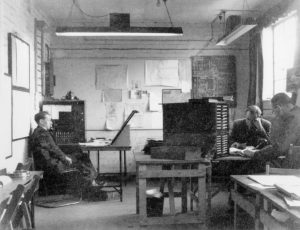
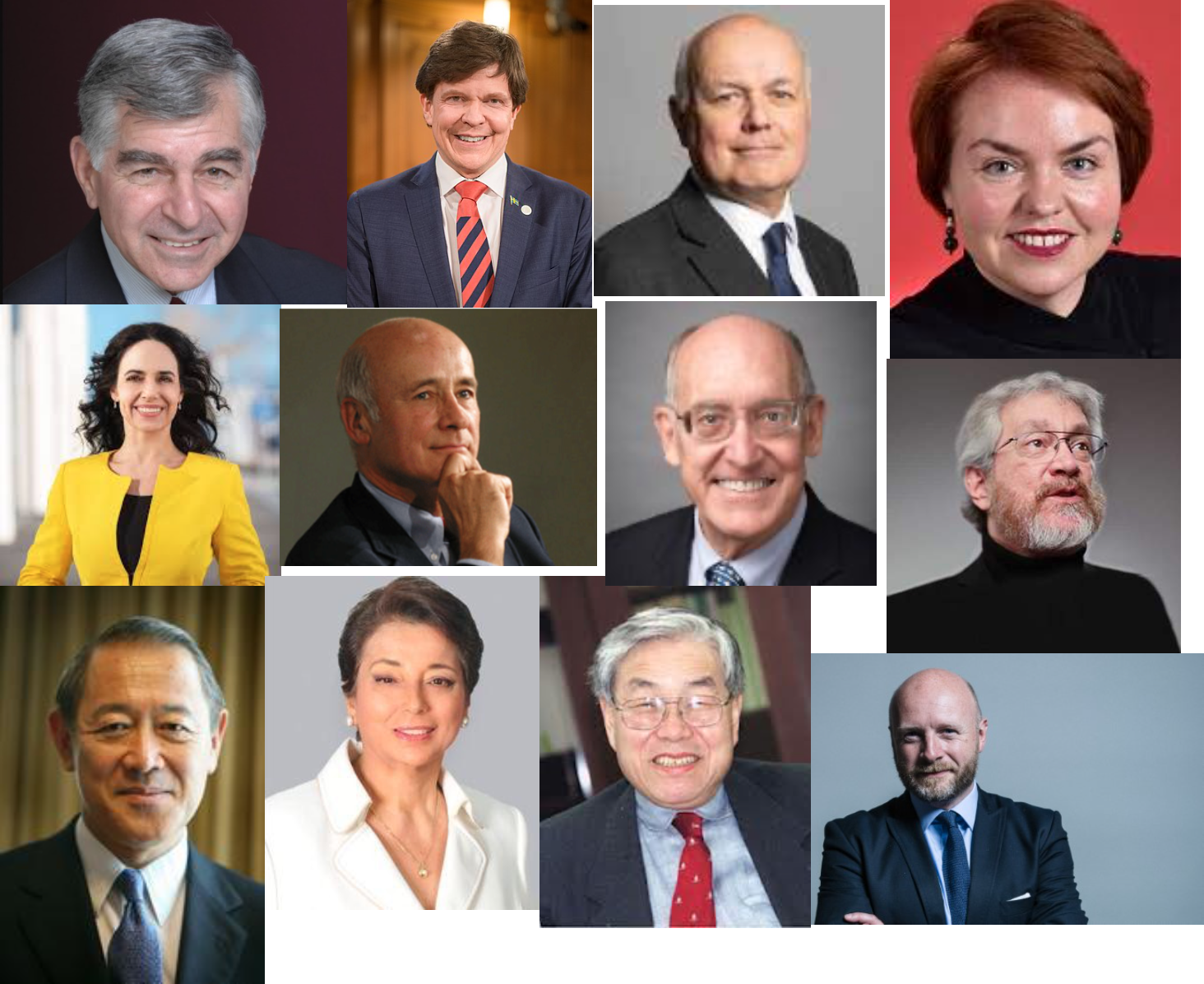
by Admin | Jul 1, 2022 | Chronicles, News
This week in The History of AI at AIWS.net – The Democratic Alliance on Digital Governance Conference was hosted on July 1st, 2020. The subheading of this event was “Protecting and Strengthening Democracy in the Aftermath of COVID-19.”
This conference was a collaboration between the Inter-Parliamentary Alliance on China (IPAC) and the Boston Global Forum. Leaders of the IPAC – Sir Iain Duncan Smith (UK), Senator Kimberley Kitching (AUS), and MEP Miriam Lexmann (CZ) – spoke and dialoged with political leaders and distinguished thinkers to build new alliances and new global economic strategies after the COVID-19 pandemic. The event was moderated by Governor Michael Dukakis. The Democratic Alliance is a part of the Social Contract 2020, A New Social Contract in the Age of AI.
This conference was a contributing stone to the foundation and the road to the Social Contract 2020, which was released later that year. Thus, the HAI project considers this a milestone in the development of artificial intelligence, in broader society and in the context of the global pandemic.
